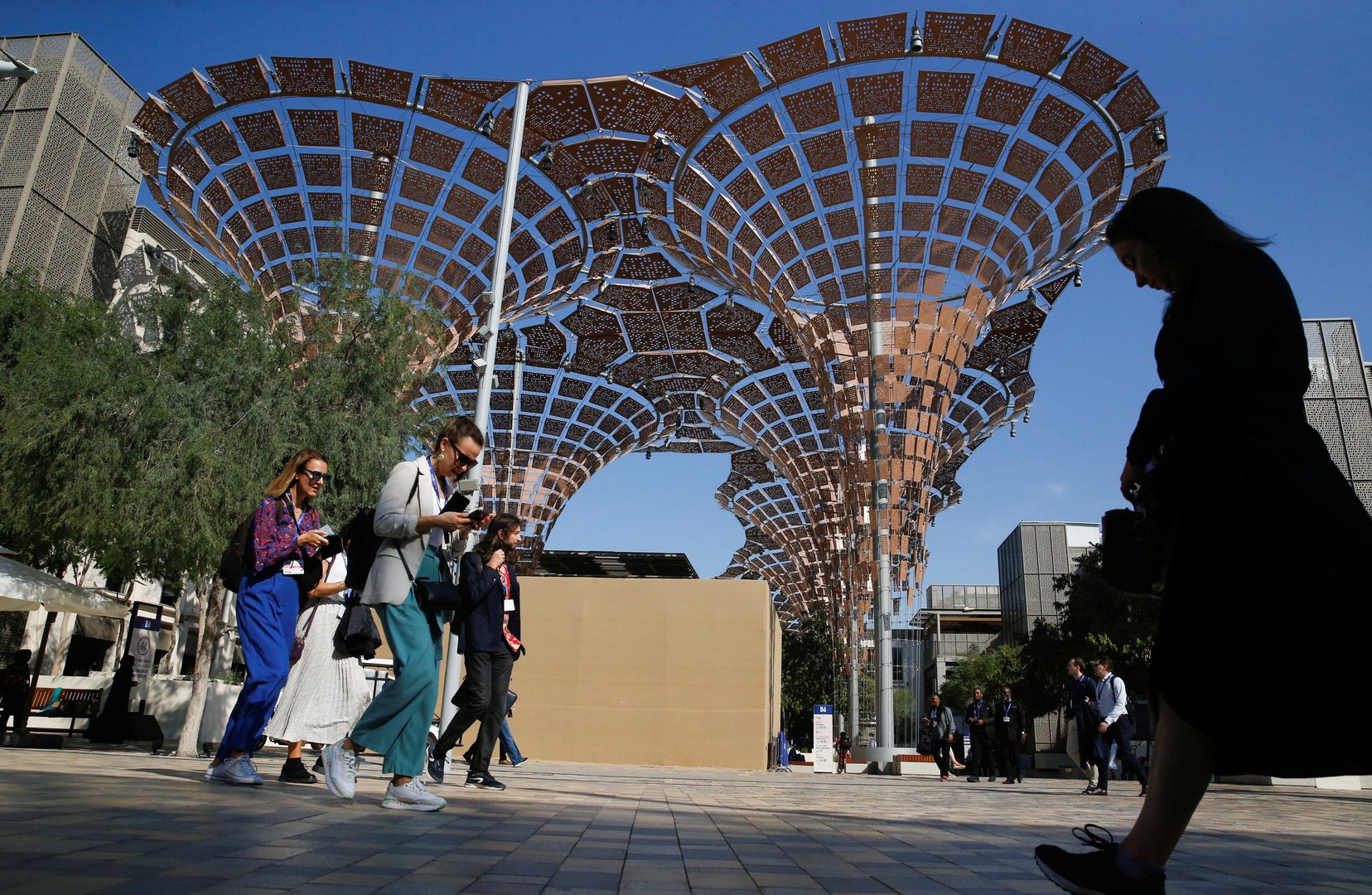COP28 has entered the home straight. The summit must conclude by the end of Tuesday, December 12. And it is getting down to the key issues.
As one COP28 delegate put it, “In eight years of attending climate talks, I have never felt so much like we’re getting real about what matters. It’s kind of blowing my mind.”
But there is a long way to go. Out of 24 key topics that comprise the Global Stocktake agreement, only one has been agreed so far – the ‘loss and damage fund’. Five are ‘nearly agreed’, with the rest ‘not agreed’ yet. Everything is still on the table.
There are “wide gaps between the parties” on emission cuts to 2030, and negotiations on climate adaptation and finance are still at preliminary stage. ‘Global Goal for Adaptation’ (GGA) negotiations did not go far last week. This is a key goal still looking for a compromise. And it will come only if adaptation is seen as an investment, as it should be, and not as a sunk-cost.
In the meanwhile, on Sunday ‘Nature, Land Use and Ocean Day’ saw state leaders “endorse commitments and pledges of over $186million to drive climate action and continue to build momentum to protect and restore nature.” This is in addition to the $2.5billion mobilised to protect and restore nature during COP28’s ‘World Climate Action Summit’ on December 2. Reversing nature-loss can provide more than 30 per cent of the mitigation action needed to keep 1.5°C within reach by 2030.
Sunday was also ‘Food, Agriculture and Water Day’, with major announcements on “climate action for both water and food security and decarbonisation, as countries demonstrated their commitment to implement the COP28 UAE Declaration on ‘Sustainable Agriculture, Resilient Food Systems, and Climate Action’.” This was endorsed by 150 countries, with more than $7.1billion mobilised for climate-positive action in the food system sector.
Earlier, COP28’s flagship ‘Youth, Children, Skills and Education Day’ hosted the first ever Youth Stocktake, bringing together thousands of young people from across the globe under the banner of climate action.
Entering the final, decision-focused two days, discussions on the future of fossil fuels are intensifying. Something like 100 countries have said they will support fossil fuel phase out. But many others are not prepared to accept phase out. And it is not just the oil producers led by Saudi Arabia, but also China, India, Russia, Turkey and many others. The hope by the COP28 Presidency is to arrive at some compromise wording. Words such as ‘phase down’, ‘unabated’ and ‘orderly’ have been suggested. Despite the COP28 chairman’s call “to show flexibility, to act with urgency, and to find the common ground,” debate is becoming heated. It will go to the wire.
The chief Chinese climate envoy, Xie Zhenhua, said China would like to see fossil fuels phased out in tandem with the rise of renewable energy, but did not indicate whether China would support language calling for fossil fuel phase out. Many hours of talks between Xie Zhenhua and John Kerry on Sunday may still produce a compromise.
But a warning: even though wording is attracting massive attention, and moving away from fossil fuels is important, even if agreed, making it happen is far from certain. Remember the ‘phase down of unabated coal’ agreed at COP26. There are still no signs of it happening.
Progress on nuclear fusion may eventually provide the answers. John Kerry, the US special presidential envoy for climate, declared at the Atlantic Council Energy Forum at COP28 that fusion’s time had come. But it is not here yet – certainly not within this decade.
The key issues at this COP are still: “whether meaningful reductions in methane emissions can be agreed, whether real money would be committed to promote the energy transition in developing countries, whether agreement on tripling renewables and doubling energy efficiency by 2030 will be reached and whether credible pathways to net-zero emissions would be agreed.” Progress on these will make a difference, even if the thorny question about the future of fossil fuels remains unanswered.
A sobering thought. Whatever comes out of this COP, carbon concentration in the atmosphere, the single most important factor that drives global warming, is still growing at a steady rate of 2 parts per million (ppm). The needle has not moved – it has been unaffected by COP decisions to-date.
As Simon Stiell, UN climate secretary, warned: “On so many of the key issues on the COP agenda, there are still multiple options on the table that represent faster or slower action on climate impacts and solutions.” It is now “go time for governments”.







Click here to change your cookie preferences